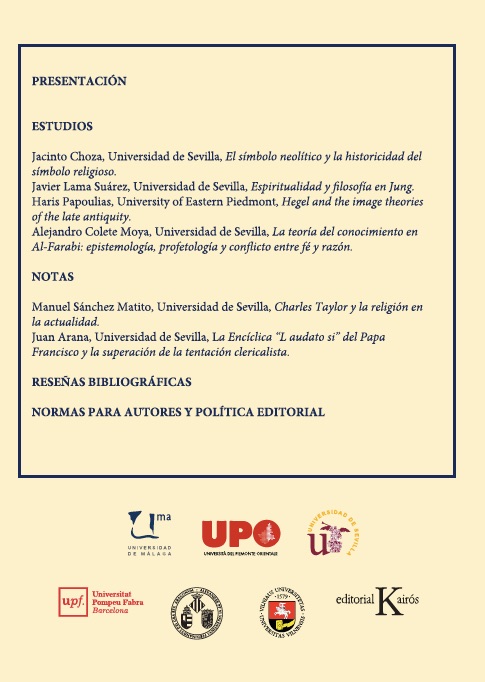Espiritualidad y filosofía en Jung
DOI:
https://doi.org/10.24310/Raphisa.1.v1i1.3621Abstract
Resumen: Este trabajo tiene como intención expresa acercar el foco de nuestra atención hacia dos elementos que habitan en el pensamiento junguiano:
La dimensión espiritual que se deriva de la forma en que Jung concibe su propia labor terapéutica, así como de su comprensión del significado de la vida y del valor que en ella tiene el sufrimiento y la aflicción que le son asociados. La “cura de almas” como algo que, en definitiva, desborda necesariamente el marco de la medicina y la psicología científicas.
El complejo entramado de los presupuestos metafísicos y de las filiaciones filosóficas que, de forma sucesiva, va a ir adoptando el discurso junguiano a lo largo de su gestación.
Palabras clave: arquetipo- proceso de individuación- sí-mismo- enantiodromía- persona- sombra- animus- anima- imaginación activa- wu-wei- proyección psicológica- pleroma- metanoia- hierogamia.
Abstract: This work aims to express approach the focus of our attention to two elements that inhabit the Jungian thought:
The spiritual dimension which is derived form that Jung conceives its own therapeutic work, as well as their understanding of the meaning of life and the value that it has suffering and grief that are associated with it. “Cure of souls” as something that, ultimately, necessarily goes beyond the framework of scientific medicine and psychology.
The complex network of metaphysicians budgets and the philosophical affiliations which, successively, will go by adopting the Jungian thought along its gestation speech.
Key words: archetype, individuation process, self, enantiodromia, persona, shadow, animus, anima, active imagination, wu-wei, psychological projection, pleroma, metanoia, hierogamy.
Downloads
Metrics
Downloads
Published
How to Cite
Issue
Section
License
License permitted by the journal: Public Domain. Authors retain the copyright and full publishing rights without restrictions.






